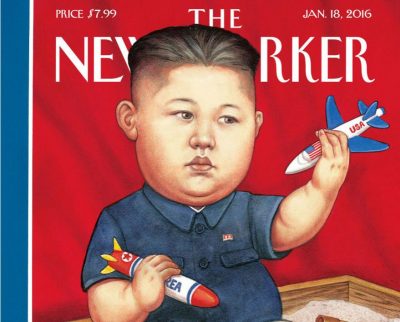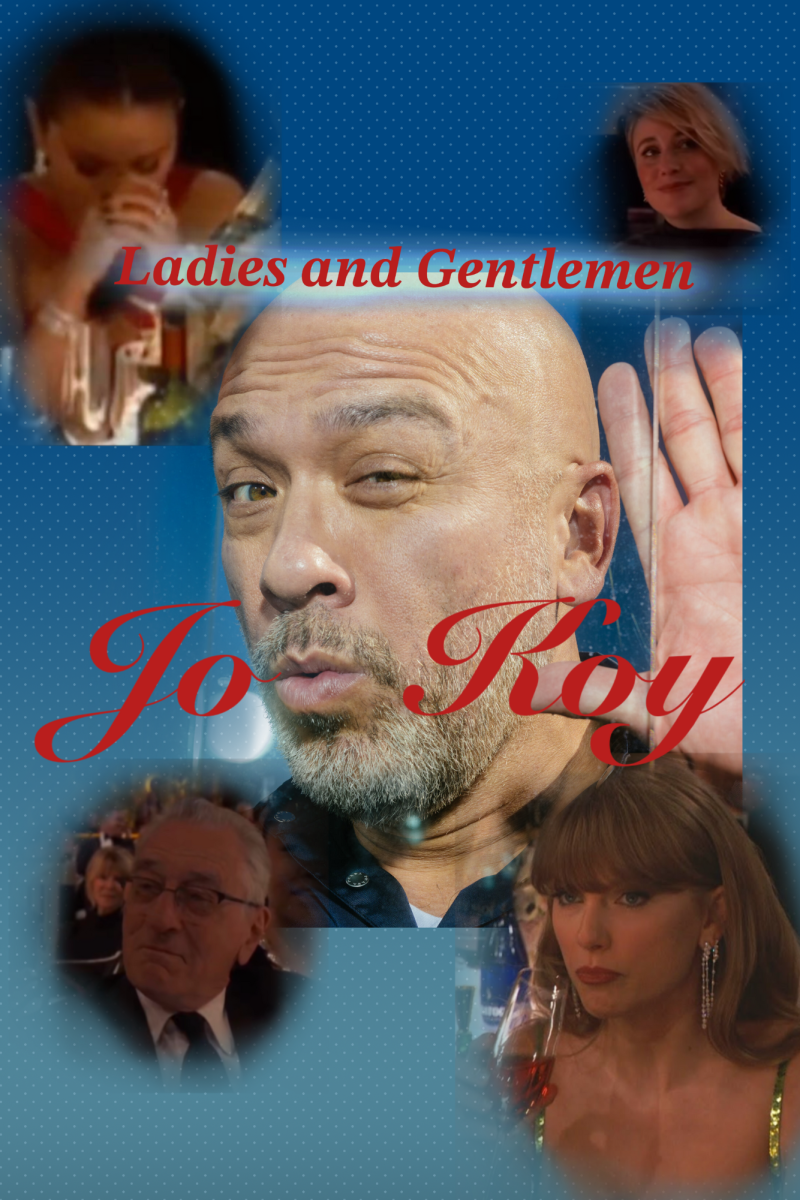By MINA RHEE
Staff Writer
American media representations of North Korea and its dictators are often permeated by Orientalist stereotypes. Take, for instance, the recent New Yorker cover that depicted Kim Jong-un as an oversized baby playing with toy missiles following the news that North Korea was testing nuclear weapons in January of this year.

It is indisputable that North Korea deserves criticism for a wide range of issues, including its nuclear policies, but the manner of criticism that American media sometimes employs has its own issues.
Patronizing criticisms of Kim Jong-un, such as those that equate him to a baby, can be connected to Orientalist stereotypes of Asian men as emasculated creatures – emotionally stunted animals that can’t make their own decisions.
The movie The Interview, released in 2014, follows similar stereotypical patterns as well, depicting Kim Jong-un as “a castrated Asian male. Irrational, angsty, and ultimately impotent, Kim Jong-un is cast as a man who falls short of the standards of manliness set by the West,” as explained by The Ethos Review.
When, according to BBC, the movie was pulled from theaters by Sony following threats from hackers, people streamed the movie based on the reasoning of “‘Murica!” because, apparently, streaming a movie is an act of political courage.
While many people watched this movie as an act expressive of patriotic defiance, laughter in the face of the atrocities portrayed is as grievous an offense as the oppressive North Korean government’s unilateral promotion of popular complacency. Laughter neutralizes the very real threat of North Korea, just as complacency does. By focusing on racist stereotypes when portraying the ridiculousness of the North Korean leader, Americans ignore the very real suffering of North Korean citizens.
We become comfortable with the idea that, by watching The Interview and laughing at Kim Jong-un, we have done our part to “stand up” to North Korea, without actually taking any action, thus allowing a dictatorship to maintain itself.
Similarly, portraying Kim Jong-un as as a baby on a magazine cover erases the gravity of the situation; the missiles he is holding aren’t toys – if he chooses to use them, it isn’t the imaginary inhabitants of a toddler’s playtime that are hurt – it’s real people.
We can all agree that Kim Jong-un is terrible. When that fact is so clearly entrenched in American understanding, “criticisms” of Kim Jong-un based on racist stereotypes can hardly be considered revolutionary, much less effective.
We can all concede that dictatorships and violations of human rights are bad, but when we infantilize the people and mock the system that allows these things to happen, we only promote complacency and ignorance instead.
The existence of a regime that consistently denies basic human rights to its people is terrifying. Yet sometimes laughter doesn’t show bravery in the face of such a regime. In this case, it’s used to promote distance, as we feel good about ourselves for our supposed “bravery,” even while the real suffering of the people under a repressive regime becomes more abstract and forgotten. Therefore, we bring to the forefront Orientalist caricatures that never incentivize us to actually take any effective action for the people we should truly be caring about.
The American media’s criticisms of Kim Jong-un relies on harmful Orientalist stereotypes
May 9, 2016

Story continues below advertisement
Donate to Sword & Shield
$180
$1000
Contributed
Our Goal
Your donation will support the student journalists of University High School. Your contribution will allow us to purchase equipment and cover our annual website hosting costs.














thesixfootbonsai • May 9, 2016 at 10:57 pm
I agree with what you are saying (I think). I have an unusual perspective so let me see if I have this right. We should not focus on Kim Jong-un as an Asian man but as a leader who is misleading his people– taking them down a bad path. We should speak of him like Hitler or Stalin (or maybe Trump. . .) But there is something too about future that makes the man . . .every person. It is an old book but Ruth Benedict wrote about the Japanese culture in the 40’s and having been involved with multiple Japanese men I can see that what she wrote about the national character is for the most part true. There are tendencies that drive certain behaviors both in the leaders and followers. Thus Japan did foolish things under Hirohito. So overall using a stereotype as a source of comedy for the purpose of eliciting a negative reaction to the North Korean leader seems childish of us, but the stereotype is somewhat true and should be examined anthropologically.